This article is part of a series on equine fitness! Check out part one here.
Part 2:
- Replenish Electrolytes
- Warm-Up BEFORE Riding
- Eat Carbs For More Energy
Replenish Your Electrolytes Often
I covered the importance of hydration in pro-tip 3. Everyone’s heard the word electrolyte before, but do you know what they are and how these minerals affect you and your riding?
Sweat has a lot of sodium, but it also contains magnesium, potassium and calcium. These minerals aid in keeping your fluids (chemistry) balanced by removing waste, carrying nutrients into the cells, and producing energy in the body. They’re called ‘electro’lytes because they conduct electrical charges within our bodies. We transport electrolytes through the fluids in the body like sweat, blood, urine, and use the electrical energy to produce important bodily functions.
Below are the health benefits of the most common electrolytes and how they affect our bodies
Sodium
- The proper ratio of sodium is crucial to how your brain handles memory and function. Have you ever been turned around on a cross-country course, forgot the right transition in a dressage test, or just had unusual brain fog at the wrong time? Well, not enough sodium causes the brain to shrink, and too much causes the brain to swell, affecting memory. New research suggests that the slightest amount of dehydration negatively affects brain function and cognition.
Magnesium
- When your magnesium and sodium levels are balanced, it plays an extremely important role in fighting dehydration headaches, which around 10% of people experience! Most of us consume an abundance of sodium from our drinks and food with a deficiency of magnesium in the diet. An imbalance of these minerals also leads to chronic fatigue. Magnesium is in charge of over 300 enzyme functions throughout the body.
- Trouble sleeping? Sleep quality is a major health booster with electrolytes. People experience less fatigue during the day, higher productivity, and improved focus when balanced. Researchers found that lower levels of cortisol (stress hormones) and higher levels of sleep hormones were affected by the slightest adjustments in magnesium. Improve the ‘quality’ of rest and recovery, and you’ll naturally perform better.
- Chronic stress, anxiety, and depression are also linked to insufficient amounts of magnesium in the body.
- Electrolytes have a close relationship with the immune system. Magnesium is in charge of your body’s inflammation levels. Did you know that?
Potassium
- Nervous jitters before showing? Eat a banana! Not enough potassium and too much salt can cause high blood pressure. Based on the findings, increasing your potassium intake can lower your blood pressure.
- Potassium coupled with the other electrolytes are part of a healthy diabetes prevention plan, along with decreasing sugar intake and exercising frequently.
- Potassium is also responsible for muscle function in the intestines, with lower potassium levels hindering healthy digestion. That’s why it’s so important to consume a healthy amount of potassium and electrolytes in food and liquids!
- Increasing dietary potassium helps stabilize your pH while preserving muscle mass. These electrolyte benefits extend to your muscles and bones. A scientific study found that people who have higher intakes of daily potassium maintain an average of 3.6 more pounds of lean tissue mass than those who get 50% less potassium daily. You can increase your bone density and muscle mass by getting the proper amount of nutrients your body needs! Say WHAT?!
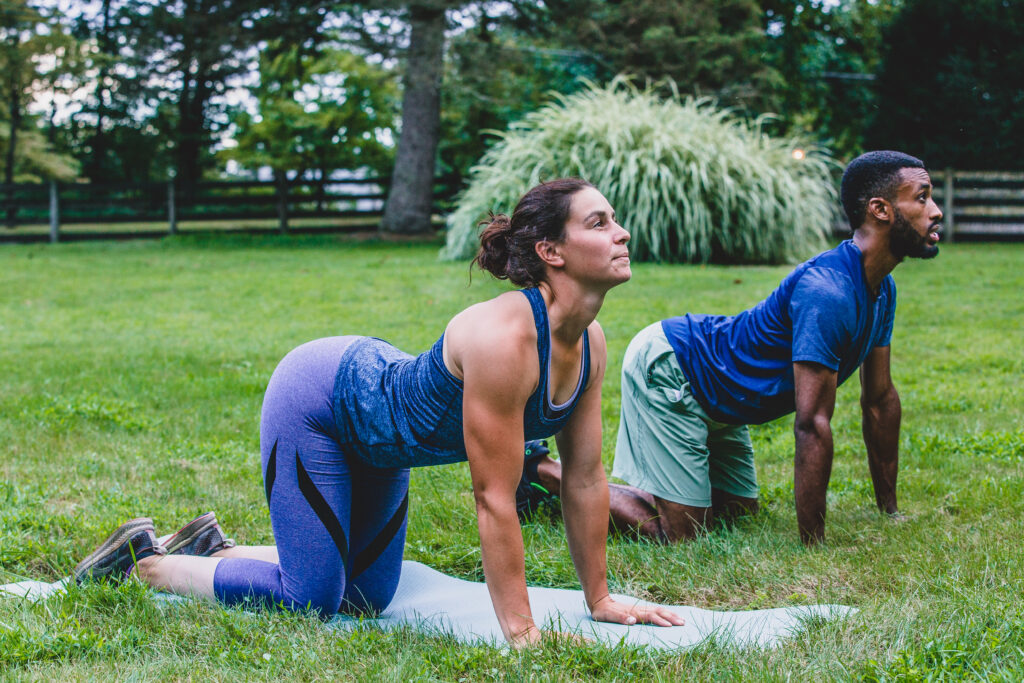
Increase Riding Performance
Losing anywhere between 1-2% of body weight through sweat can have major effects on your strength, focus and coordination in the tack. When you sweat a lot, your body depletes a lot of electrolytes, which must be replaced. Electrolyte beverages help replenish the important minerals, water, and energy lost during your workouts and your rides. Drink your electrolytes naturally with unsweetened coconut water, watermelon juice, or supplementally with sports drinks and hydration multiplier products (Liquid I.V, Nuun, and Vitalyte, to name a few. But stay away from sugary sports drinks! They provide a “burst of energy” from excessive amounts of sugar, which causes the body to “crash” shortly after those simple carbs are quickly exhausted (and crashing while riding is never good). This is one of the greatest ways to prevent muscle fatigue and cramping when riding. Get enough magnesium in your diet, from supplements or magnesium-rich foods like dark chocolate (70%+), avocados, almonds, brazil nuts, and cashews. Combining the right amount of nutrients and physical exercise has amazingly positive effects on your overall health, leading to a stronger, more stable and focused rider.
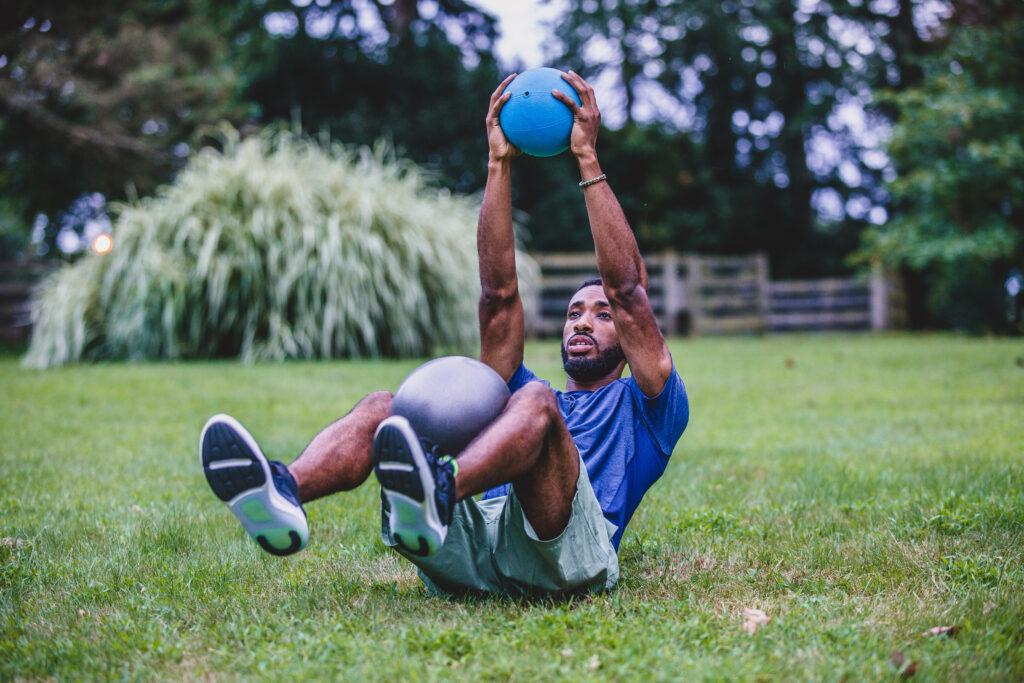
Warm up your body BEFORE warming up your horse.
Are you typically tight before getting in the saddle? Did you know that most pro riders warm up their own bodies before riding? Perform a simple 2-3 exercise routine to loosen your body and get your blood flowing to reap the long-term benefits.
I recommend a warmup of dynamic stretches prior to any session in the tack to ensure you’re recruiting all the right muscles for a successful and injury-free ride. Dynamic stretching involves active movements that stretch the muscles to their full range of motion. These exercises often simulate functional movements and help prime the body for more intense training. To prepare for a ride, for example, you might perform exercises that gently simulate the same motions used while riding, such as squats, lunges(forward & sideways), side bend stretches, and more. Try it, trust me you’ll feel the difference! (dynamic warm up article to follow)
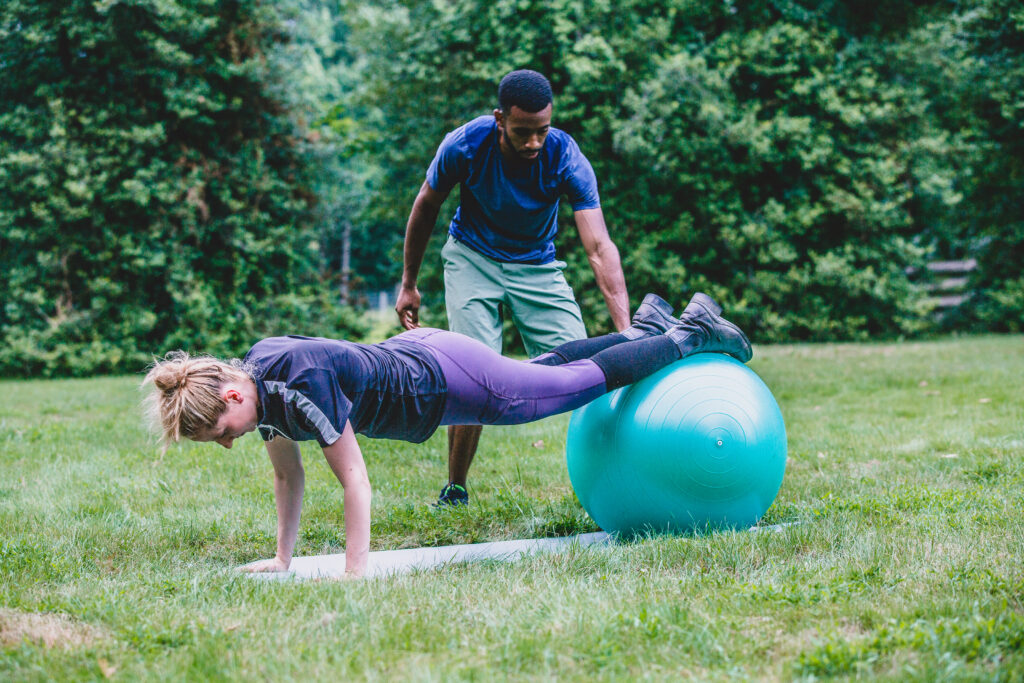
Eat Carbs, They’re A Major Source Of Energy For Your Body.
In the equestrian world you’ve probably heard or been told to be careful with carbs. Here’s a secret: carbohydrates are extremely beneficial to your health in several ways. Attention everyone!! Carbs are a major source of energy to fuel the muscles you use during moderate to intense rides!
We’re all aware of how important proper feeding is for our equine partners. They need balanced nutrition, and without it, they suffer many issues. Have you ever noticed how your horse’s energy level is affected when you alter their feed and provide them with fewer carbs? They seem tired. Our bodies work the same way. In order to take the next step towards our best fitness, we need to make sure that we aren’t depriving the body of its necessary nutrients.
Sparing you the science lecture, in basic terms, carbohydrates produce energy for the body when it’s needed, like during moderate (walking/hacking/trotting) to strenuous riding (cross-country) or for sudden bursts of energy (cantering/galloping/jumping a fence). Quality carbohydrates help maintain blood sugar levels so that we (and our horses) have sustainable energy.
Notice I said “quality” carbs. Incorporate these optimal carb options into your diet for more sustained energy:
- Sweet & Baked potatoes (Starches)
- Blueberries & Corn (Glucose)
- Oats & Quinoa (Grains)
Instead of these poor-quality carbs that do little for you:
- White Bread, Breakfast Cereals & Pretzels (Starch)
- Coffee Drinks, Beer & Baked Goods {Donuts, Danish, Muffins, etc.} (Sugars)
- Bagels, Tortilla Chips, Unhealthy Snack Bars & English Muffins (Grains)
Stay tuned for part three of the rider tips article series. Check out part one here.
Contact Ifa today for additional information about The Equestrian Fitness Academy and more great tips during your fitness journey!
Ifa is a lifelong fitness enthusiast and horse lover. He is a performance coach who’s worked with a host of different sports and demographics throughout his 10+ year career. Training your common sports like basketball, football, baseball, soccer and others. He’s also enjoyed training the other sports like fencing, Irish dance, triathletes, Hawaiian outrigger canoe racing, as well as training various equestrian disciplines for over 5 years. With quite a few years behind the scenes of working for different fitness facilities in multiple states, Ifa has reinvented himself by creating his own brand focused specifically on Equestrian Fitness. Dating back to his Eagle Scout days, he truly enjoys the outdoors and you can find him on a hiking trail, at an arboretum/botanical garden, or horse shows in New Jersey. When he isn’t enjoying the great outdoors, he’s writing articles/sharing information, or coaching with his riders in the Equestrian Fitness Academy (EFA).



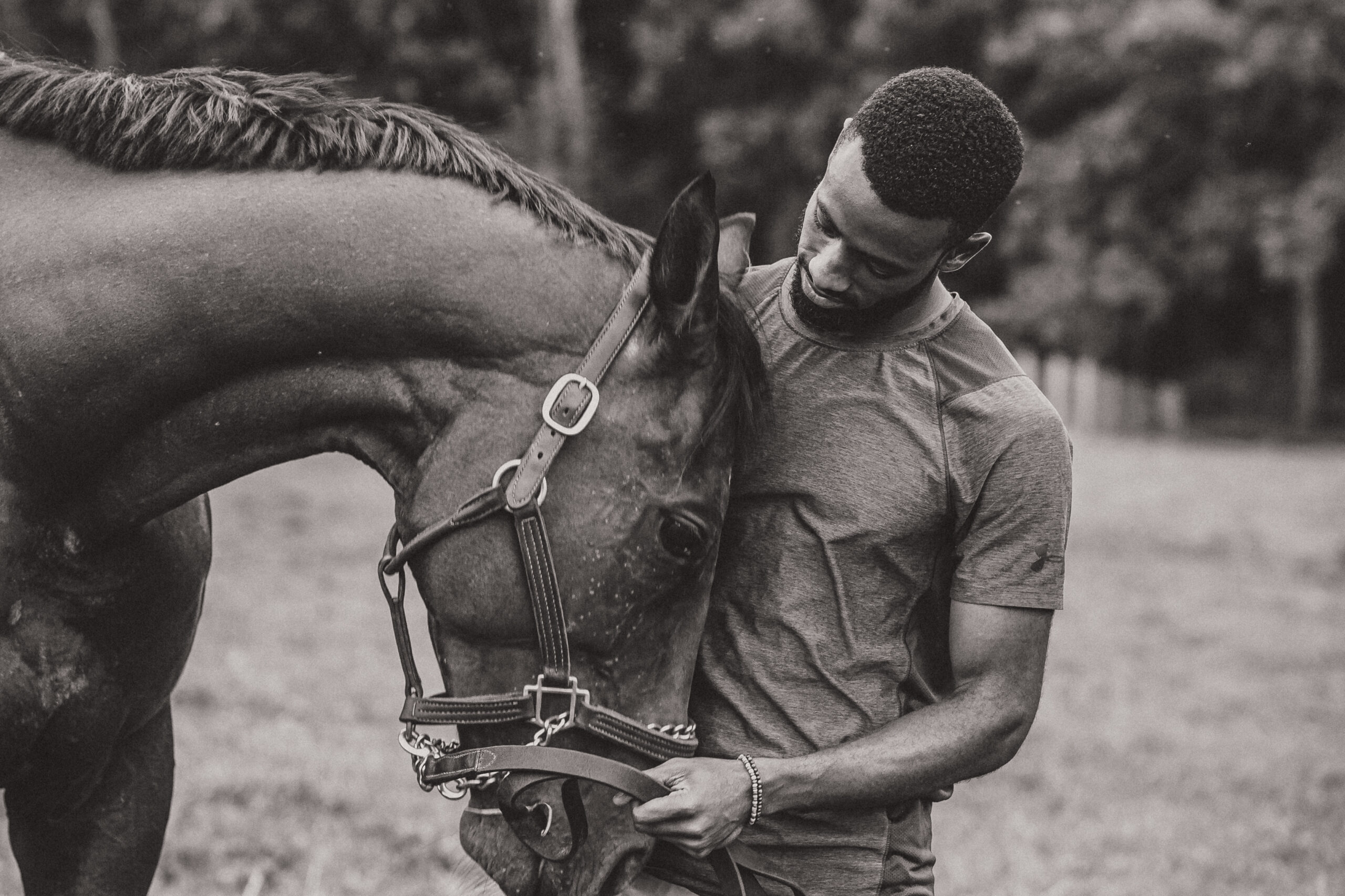


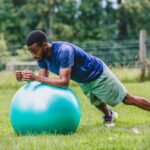
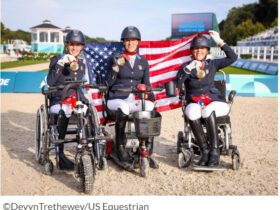
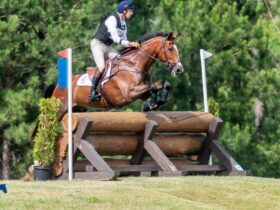

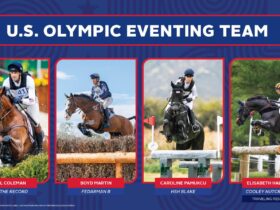


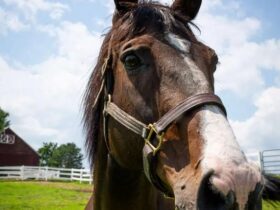
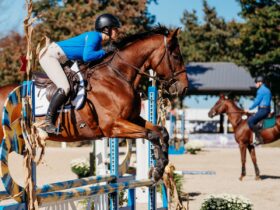

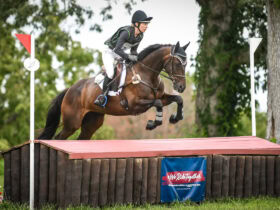
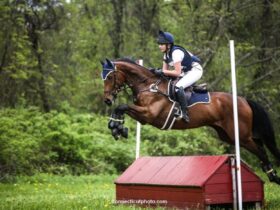


SOCIAL